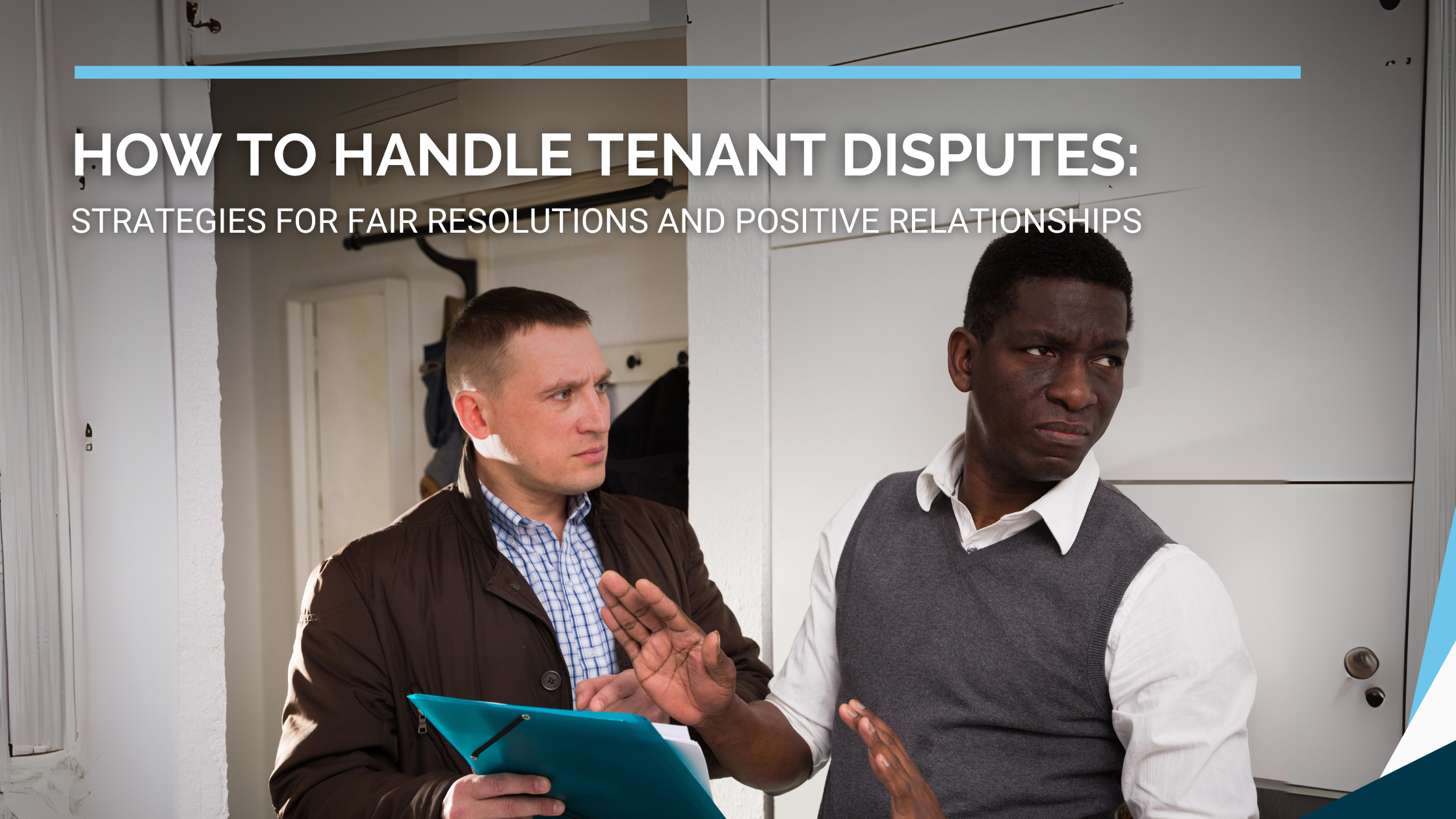Tenant disputes are an inevitable aspect of property management. Whether it’s a disagreement over rent, maintenance issues, or behavioral concerns, handling these conflicts effectively is crucial for maintaining a harmonious landlord-tenant relationship. At Rosenbaum Realty Group, we believe that addressing disputes promptly and fairly can lead to positive outcomes for both parties. Here are some strategies for resolving tenant disputes, ensuring fair outcomes, and maintaining positive relationships.
Open Communication
Effective communication is the cornerstone of dispute resolution. Encourage tenants to communicate their concerns openly and listen actively to their grievances. Establishing clear and open lines of communication can help prevent misunderstandings and foster a sense of trust.
Prompt Responses: Respond to tenant complaints and concerns promptly. Acknowledging their issues quickly shows that you take their concerns seriously.
Active Listening: Listen to tenants without interrupting. Understanding their perspective fully can provide insights into the root cause of the dispute.
Clear Documentation: Keep a written record of all communications regarding the dispute. This includes emails, letters, and notes from phone conversations.
Understand the Issue
Take the time to understand the underlying issue. Sometimes, the problem may not be as straightforward as it seems. Investigate thoroughly to gather all relevant information before taking any action.
Investigate: Look into the details of the complaint, including reviewing lease agreements, maintenance records, and any previous communications related to the issue.
Identify Root Causes: Determine whether the issue is a result of a misunderstanding, negligence, or external factors.
Mediation and Negotiation
Mediation and negotiation are effective tools for resolving disputes amicably. In many cases, a neutral third party can help facilitate a fair resolution.
Neutral Mediator: Consider bringing in a neutral mediator to help both parties reach a mutually agreeable solution. This could be a professional mediator or a trusted third party.
Compromise: Encourage both parties to be flexible and willing to compromise. Finding a middle ground can often resolve the issue without further escalation.
Win-Win Solutions: Aim for solutions that benefit both parties. This approach helps maintain positive relationships and prevents future conflicts.
Know Your Legal Obligations
Understanding your legal obligations is crucial in handling disputes fairly and effectively. Familiarize yourself with local, state, and federal laws governing landlord-tenant relationships.
Legal Compliance: Ensure that any actions taken are in compliance with relevant laws and regulations. This includes providing required notices and following proper procedures.
Seek Legal Advice: If a dispute escalates or involves complex legal issues, seek advice from a legal professional specializing in landlord-tenant law.
Maintain Professionalism
Maintaining professionalism throughout the dispute resolution process is essential. Emotions can run high during conflicts, but staying calm and composed can help de-escalate the situation.
Stay Neutral: Avoid taking sides or showing favoritism. Approach the dispute objectively and impartially.
Respectful Communication: Use respectful and professional language, even if the tenant is upset or confrontational.
Implement Preventive Measures
Preventive measures can reduce the likelihood of disputes arising in the first place. By being proactive, you can address potential issues before they escalate.
Clear Lease Agreements: Draft clear and comprehensive lease agreements that outline the rights and responsibilities of both parties. This helps prevent misunderstandings.
Regular Inspections: Conduct regular property inspections to identify and address maintenance issues before they become major problems.
Tenant Education: Educate tenants about their responsibilities and your expectations. Providing a tenant handbook or welcome packet can be helpful.
Follow-Up
After resolving a dispute, follow up with the tenant to ensure that the solution is working and that there are no lingering issues. This demonstrates your commitment to maintaining a positive relationship.
Check-In: Schedule a follow-up call or meeting to discuss the resolution and address any remaining concerns.
Feedback: Ask for feedback on how the dispute was handled and use it to improve your processes.
Handling tenant disputes effectively requires a combination of good communication, understanding, professionalism, and legal knowledge. By addressing conflicts promptly and fairly, property managers can maintain positive relationships with tenants and create a harmonious living environment. At Rosenbaum Realty Group, we are dedicated to providing expert guidance and support to help our clients navigate tenant disputes successfully. If you need assistance with dispute resolution or any other property management services, our team is here to help.


